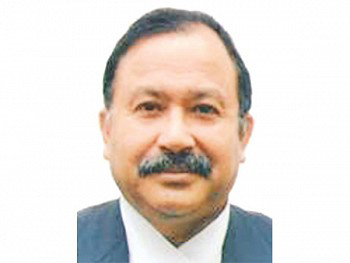‘Strengthen criminal justice system’
KATHMANDU: Seniormost Justice of the Supreme Court Kalyan Shrestha has urged Nepal Police to rise above the traditional criminal justice system to deliver timely, accurate and evidence-based justice to victims, while protecting the rights of the accused.
Addressing a one-day workshop on ‘Strengthening the Forensic Service of Nepal Police’ organised in the capital today, the Chief Justice-designate called for the need to make the criminal justice system scientific and rational by using state-of-the-art technology and effective record-keeping practice.
“There is no option to modernising and face-lifting the existing criminal justice system in Nepal Police to maintain its credibility in delivery of justice to victims and punishing the perpetrators through scientific, timely, accurate and evidence-based crime investigation,” he suggested.
Shrestha also lamented that there had been virtually no difference between the criminal justice system today and what he normally experienced more than 35 years back. “I grew older but the criminal justice system did not,” he said, adding, “The court of law can deliver right verdict only if the criminal system is effective, dependable and systematic.”
Justice Shrestha said that the courts were yet to recover more than eight billion rupees in fines from the convicts and execute over 100,000 years of jail terms handed down to them, thanks to the ‘poor criminal justice system and record-keeping of the convicts to ascertain their identity and find their whereabouts’.
He suggested that Nepal Police make necessary arrangements for collecting fingerprints of persons on the basis of citizenship certificates they acquire from district administration offices and create central database for identification of anyone who is involved in crimes and is convicted, while collecting DNA samples.
Chief Secretary Leela Mani Paudyal urged Nepal Police to strengthen the capacity of Central Police Forensic Science Laboratory for the purpose of administration of criminal justice through recognition, identification, individualisation and evaluation of physical evidences related to crime. “It is equally critical to make the lab test credible and unquestionable by adopting modern technology, skill and know-how on a par with the international standard,” he said.
Inspector General of Police Upendra Kant Aryal said that Nepal Police was doing all it could to make the forensic service more scientific and well-equipped as it was associated with the law enforcement agency’s credibility and expectation. “We have realised that criminal justice system should be based on instrumentation rather than interrogation,” he informed.
AIG Surendra Bahadur Shah said Nepal Police has adopted a strategy of making it equipped with resources and means to combat national and transnational crime.






